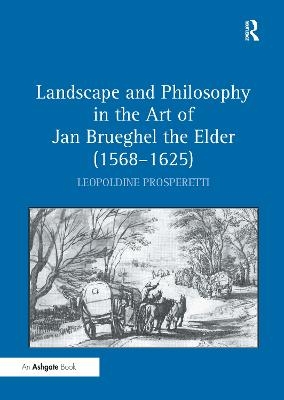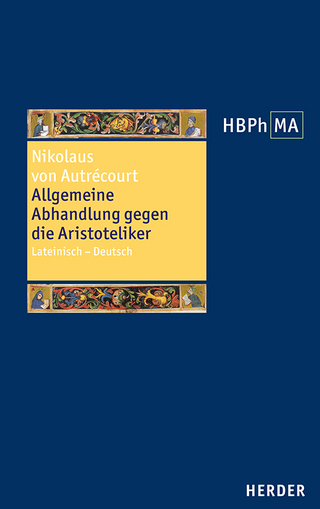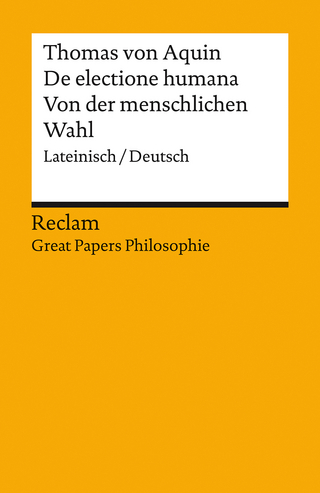
Landscape and Philosophy in the Art of Jan Brueghel the Elder (1568-1625)
Seiten
2009
Routledge (Verlag)
978-0-7546-6090-3 (ISBN)
Routledge (Verlag)
978-0-7546-6090-3 (ISBN)
- Titel z.Zt. nicht lieferbar
- Versandkostenfrei
- Auch auf Rechnung
- Artikel merken
A full length study in English on the art of Jan Brueghel the Elder. It illuminates how his work relates to a philosophical culture prevailing in Antwerp at the time. It also includes a chapter about Brueghel's innovative attention to the experience of traveling in a variety of wheeled vehicles along the roads of his native Brabant.
In this first comprehensive full length study in English on the art of Jan Brueghel the Elder, Leopoldine Prosperetti illuminates how the work of this painter relates to a philosophical culture prevailing in the Antwerp of his time. She shows that no matter what scenery, figures or objects stock the pictorial field, Brueghel's diverse pictures have something in common: they all embed visual trajectories that allow for the viewer to craft out of the raw material of the picture a moment of spiritual repose. Rooted in the art of Hieronymus Bosch and Pieter Bruegel the Elder these vistas are shown to meet the expectation of viewers to discover in their mazes a rhetorically conceived path to wisdom. The key issue is the ambition of pictorial images to bring into practice the humanist belief that philosophy and rhetoric are inseparable. This original study analyzes the patterns of thought and recurrent optical tropes that constitute a visual poetics for shifting genres - no longer devotional, yet sharing in the meditative goal of redirecting the soul toward an intuitive knowledge of what is good in life. This book reveals how everyday life is the preferred vehicle for delivering the results of philosophical pursuits. One chapter is dedicated to Brueghel's innovative attention to the experience of traveling in a variety of wheeled vehicles along the roads of his native Brabant. He is unique, and surprisingly modern, in giving contemporary viewers an accurate account of all the different types of conveyances that clutter the roads. It makes for lively versions of one of his favorite themes: The Traveled Road. By taking the pursuit of wisdom as its theme, the book succeeds in presenting a new model for the interpretation of a range of visual genres in the Antwerp picture trade.
In this first comprehensive full length study in English on the art of Jan Brueghel the Elder, Leopoldine Prosperetti illuminates how the work of this painter relates to a philosophical culture prevailing in the Antwerp of his time. She shows that no matter what scenery, figures or objects stock the pictorial field, Brueghel's diverse pictures have something in common: they all embed visual trajectories that allow for the viewer to craft out of the raw material of the picture a moment of spiritual repose. Rooted in the art of Hieronymus Bosch and Pieter Bruegel the Elder these vistas are shown to meet the expectation of viewers to discover in their mazes a rhetorically conceived path to wisdom. The key issue is the ambition of pictorial images to bring into practice the humanist belief that philosophy and rhetoric are inseparable. This original study analyzes the patterns of thought and recurrent optical tropes that constitute a visual poetics for shifting genres - no longer devotional, yet sharing in the meditative goal of redirecting the soul toward an intuitive knowledge of what is good in life. This book reveals how everyday life is the preferred vehicle for delivering the results of philosophical pursuits. One chapter is dedicated to Brueghel's innovative attention to the experience of traveling in a variety of wheeled vehicles along the roads of his native Brabant. He is unique, and surprisingly modern, in giving contemporary viewers an accurate account of all the different types of conveyances that clutter the roads. It makes for lively versions of one of his favorite themes: The Traveled Road. By taking the pursuit of wisdom as its theme, the book succeeds in presenting a new model for the interpretation of a range of visual genres in the Antwerp picture trade.
Leopoldine Prosperetti is Adjunct Professor at Goucher College and Towson University in Maryland and a Kress Fellow at the Washington County Museum of Fine Arts in Hagerstown. She has published in Art History and contributed an essay to Image and Imagination of the Religious Self (2008).
Contents: Preface; Jan Brueghel; painter of rural prospects; Art lovers in their cabinets; Burning cities, red-hot forges and time-pieces: commonplaces of experience; Pingere rura (depicting fields); The Tower of Scipio: neo-stoicism and its rewards; Anatomy of greenery; the vegetal lexicon; Spokes and felloes: updating the wayfaring topos; Epilogue; Bibliography; Index.
| Erscheint lt. Verlag | 28.1.2009 |
|---|---|
| Verlagsort | London |
| Sprache | englisch |
| Maße | 174 x 246 mm |
| Gewicht | 907 g |
| Themenwelt | Kunst / Musik / Theater ► Kunstgeschichte / Kunststile |
| Kunst / Musik / Theater ► Malerei / Plastik | |
| Geisteswissenschaften ► Philosophie ► Philosophie des Mittelalters | |
| ISBN-10 | 0-7546-6090-7 / 0754660907 |
| ISBN-13 | 978-0-7546-6090-3 / 9780754660903 |
| Zustand | Neuware |
| Haben Sie eine Frage zum Produkt? |
Mehr entdecken
aus dem Bereich
aus dem Bereich
Buch | Softcover (2024)
Reclam (Verlag)
CHF 11,90
Lateinisch - Deutsch
Buch | Hardcover (2024)
Herder (Verlag)
CHF 97,95
von der menschlichen Wahl
Buch | Softcover (2024)
Phillip Reclam (Verlag)
CHF 10,35


